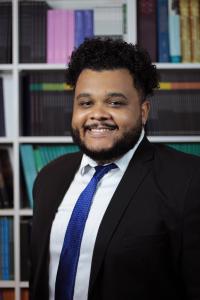The International Security Conference "Forte", which was launched in 2003 in the military fortress "Forte de Copacabana" in Rio de Janeiro, has developed over the last decade into the largest security conference in Latin America. It aims to stimulate and strengthen the dialogue between decision-makers, representatives of the armed forces, scientists and business representatives from both sides of the Atlantic. This year's theme was "The Changing Global Order: Facing the Perfect Storm," and addressed a total of five main topics.
In the opening panel, Carlos Márcio Cozendey (Undersecretary for Multilateral Political Affairs of the Brazilian Ministry of Foreign Affairs), Uruguayan Foreign Minister Javier García Duchini, President of the German Federal Intelligence Service Dr. Bruno Kahl and Deputy Secretary General and Political Director of the European Union External Action Service Enrique Mora eroded the question of what role Latin America and Europe play in the changing global order. In this context, they shared their assessments of current geopolitical developments with the audience. Among other topics, the high-ranking speakers addressed the Russian invasion of Ukraine, transatlantic relations and South-South cooperation. The first thematic panel addressed the role of international organizations in the face of the perfect storm as well as in global peacekeeping. Belén Martínez Carbonell (EU), Benedetta Berti (NATO) and Amena Yasseni (Brazilian Ministry of Foreign Affairs) discussed whether the current rules and regulations of multilateral institutions such as the United Nations and NATO are still up to date and live up to their claim to secure peace in the world. They also debated the role of nation states and the effectiveness of resolutions and economic sanctions. The second thematic panel dealt with the global economy and strategic partnerships in times of war and conflict. The first thematic panel addressed the role of international organizations in the face of the perfect storm as well as in global peacekeeping. Belén Martínez Carbonell (EU), Benedetta Berti (NATO) and Amena Yasseni (Brazilian Ministry of Foreign Affairs) discussed whether the current rules and regulations of multilateral institutions such as the United Nations and NATO are still up to date and live up to their claim to secure peace in the world. They also debated the role of nation states and the effectiveness of resolutions and economic sanctions. The second thematic panel dealt with the global economy and strategic partnerships in times of war and conflicts. Veronique Lorenzo (EU), Henning Speck (CDU) and Ambassador Roberto Jaguaribe (Brazilian Ambassador to Germany) deepened the debate on the effectiveness of economic sanctions and the fallacy that trade relations necessarily ensure peace. They also addressed the importance of the strategic association agreement between the EU and the Mercosul.
The second day of the conference began with the panel on the challenges and perspectives posed by artificial intelligence in the changing world order. Here, Serap Güler (CDU), member of the German Bundestag, shared with Juha Heikkilä (EU) and Miriam Wimmer (Brazilian data protection authority ANPD) their assessments of the impact of international disputes and technological developments on agreements such as the non-use of nuclear weapons, the regulations needed to ensure ethics and morality in the use of artificial intelligence, and the role of Europe and Latin America in this context. The fourth and final panel addressed the tension between autocracies and democracies. Rubens Ricupero (CEBRI), Rasa Juknevičienė (European Parliament), and Andrés Malamud (University of Lisbon) discussed the current challenges of democratic systems in view of the global power struggle in the context of the war in Ukraine. They focused on the implications of this alleged tension for international security and the positioning of Latin America and Europe.
The panels were moderated by journalist Leila Sterenberg and academics Feliciano de Sá Guimarães (CEBRI), Antônio Ramalho (University of Brasília) and Prof. Dr. Carlo Masala (University of the German Armed Forces in Munich). The event was opened and closed by Anja Czymmeck (KAS Brazil), José Pio Borges (CEBRI) and Ambassador Ignacio Ybáñez. The hybrid conference was attended by more than 2,000 online guests from every continent. In Rio de Janeiro, 370 people attended the event. Accompanying the conference, policy papers were published on the topics of the event with specific recommendations for decision-makers.
Topics
Provided by
Foundation Office Brazil
About this series
The Konrad-Adenauer-Stiftung, its educational institutions, centres and foreign offices, offer several thousand events on various subjects each year. We provide up to date and exclusive reports on selected conferences, events and symposia at www.kas.de. In addition to a summary of the contents, you can also find additional material such as pictures, speeches, videos or audio clips.





